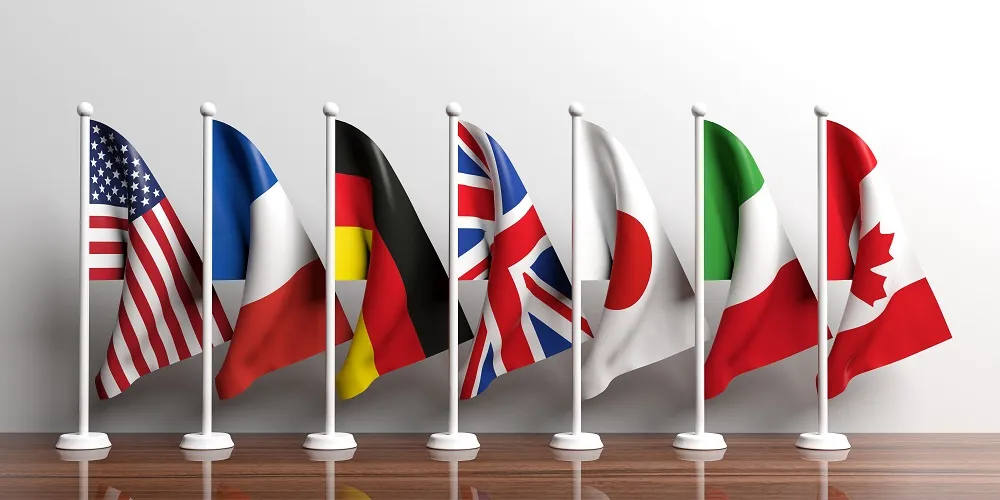
Coinposters
G7 Want Crypto Regulation to Be Swift and Rapid

Last week, G7 Finance Ministers and Central Bank Governors convened to discuss global economic circumstances, including cryptocurrencies.
The committee was joined by the heads of the International Monetary Fund, World Bank Group, Organization for Economic Cooperation and Development, and Financial Stability Board, some of whom had previously been anti-crypto.
According to the paper, the G7 is collaborating with the FSB to “monitor and handle financial stability issues emanating from all types of crypto-assets.” It cites the recent crypto market downturn as justification for accelerating the development and implementation of consistent and comprehensive regulation of crypto-asset issuers and service providers, with the goal of holding crypto-assets, including stablecoins, to the same standards as the rest of the financial system.
There is no mention of the Dow Jones’ 20% drop in relation to the crypto market’s downturn. Surprisingly, a drop in crypto suggests that further regulation is needed quickly.
Traditional markets, on the other hand, are said to be efficient and well-regulated. While effective regulation is almost certainly required in the new crypto business, it is equally critical to recognize and appreciate the complexities of blockchain protocols.
Traditional norms and regulations were created for the real world and may not be applicable to the complicated nature of DeFi, GameFi, and other digital financial assets. To claim that the establishment of crypto law must be finished quickly begs the question of whether this regulation will be comprehensive and supportive of innovation.
The research does highlight, however, that stablecoin regulation must appropriately satisfy key legal, regulatory, and supervision needs through suitable design and adherence to applicable standards.
It goes on to say that digital payments innovation is a crucial engine of economic advancement and development, particularly through quicker, cheaper, more transparent, and inclusive cross-border payment services.
However, the next portion of the paper does not cover the cryptocurrency markets in general. Instead, it assesses the viability and execution of Central Bank Digital Currencies, which it thinks must be transparent. It emphasizes that CBDCs, rather than current cryptocurrencies, might be the answer to cross-border payments and innovation.
CBDCs with cross-border capability have the potential to stimulate innovation and offer up new avenues for meeting customers’ need for more efficient international payments.
There are several possible solutions, such as Bitcoin’s Lightning Network, Ethereum Layer 2 solutions, and numerous additional layer-1 blockchains that can handle, process, and settle international payments in seconds with minimum fees. These initiatives, on the other hand, are public, open-source, and decentralized.
They are not governed by the same laws and authorities as CBDCs. The G7 thinks that financial system governance must stay within their purview. With global inflation over 6% and GDP falling month after month, some may wonder if it is time for a change and a shift toward decentralization.
Latest
News
16 Jan 2024
News
31 Aug 2023
News
24 Jun 2023
News
24 Jun 2023
News
23 Jun 2023













